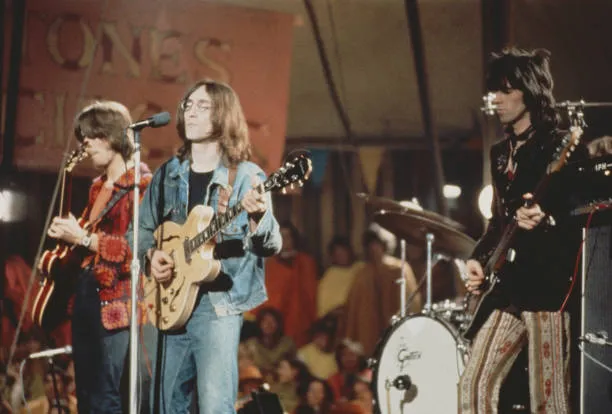Elton John, a musical icon known for his flamboyant style and timeless hits, has always been open about his struggles with self-esteem and emotional volatility. Despite his immense success, John's candid admissions about his inner turmoil reveal a deeply human side of a larger-than-life figure. His statement, "I can still explode at any moment. I just have terrible feelings about myself," highlights the ongoing battle with personal demons that many, including those in the public eye, face.
The Duality of Fame and Inner Struggle

Elton John's career has been a testament to both extraordinary talent and the pressures of fame. Rising to stardom in the 1970s, he became known not just for his music but also for his extravagant stage presence and lifestyle. However, behind the glitter and glamor lay a man grappling with intense self-doubt and insecurity. John's admission of having "terrible feelings" about himself is a poignant reminder that success and adulation do not necessarily equate to inner peace.
The Impact of Early Life and Career Pressures
John's emotional struggles can be traced back to his early life and the pressures of his rapid rise to fame. Born Reginald Kenneth Dwight, he grew up in a household where he felt unloved and misunderstood. His parents' tumultuous relationship and his father's strictness left deep emotional scars. These early experiences shaped his self-perception and contributed to the insecurities that would plague him throughout his life.
As his career took off, the pressures of maintaining his success and public image only exacerbated these feelings. The relentless touring, media scrutiny, and the need to continually produce hit records created a perfect storm of stress and anxiety. John turned to drugs and alcohol as coping mechanisms, which, while providing temporary relief, ultimately deepened his emotional turmoil.

Explosive Temper and Emotional Volatility
John's statement about being able to "explode at any moment" reflects his well-documented temper and emotional volatility. Known for his outbursts and unpredictable behavior, John often found himself in conflicts with bandmates, management, and even friends. These episodes were manifestations of his inner struggles, a way of releasing pent-up frustration and pain. While these outbursts often made headlines, they were symptoms of deeper issues rather than mere personality quirks.
Journey to Sobriety and Self-Reflection
The turning point for John came in the early 1990s when he decided to confront his addictions and seek help. Entering rehab was a pivotal step in his journey toward self-acceptance and emotional stability. Sobriety allowed John to address the underlying issues that fueled his self-destructive behaviors. It was during this period that he began to engage in self-reflection and therapy, uncovering the roots of his low self-esteem and working towards healing.

Continuing Struggles and Advocacy
Despite his progress, John acknowledges that his battle with self-esteem and emotional volatility is ongoing. His statement underscores the reality that mental health is a continuous journey, not a destination. However, John's willingness to speak openly about his struggles has had a positive impact far beyond his personal life. As a prominent public figure, his honesty has helped destigmatize discussions around mental health and addiction.
John's work through the Elton John AIDS Foundation and other charitable endeavors further exemplifies his commitment to using his platform for positive change. By channeling his experiences into advocacy, he has not only helped others but also found a sense of purpose and fulfillment.

Conclusion
Elton John's candidness about his inner struggles serves as a powerful reminder that even the most successful individuals are not immune to self-doubt and emotional pain. His journey from a troubled childhood to global superstardom, and his ongoing battle with self-esteem, highlight the complexities of the human experience. Through his music, advocacy, and personal resilience, John continues to inspire and resonate with millions, proving that vulnerability and strength often go hand in hand.



